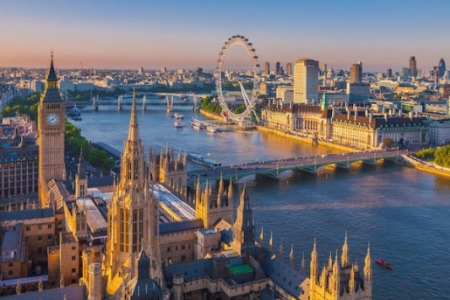Obtaining a gambling license in the UK

The United Kingdom is one of the most developed countries in the gambling industry, where casinos and other forms of gambling are officially permitted.
UK legislation supports entrepreneurs engaged in the gambling sector. Local businesses pay taxes at low rates, while non-residents are exempt from most financial costs and fees.
Law & Trust offers professional assistance in obtaining a gambling license.
The UK has several types of licenses related to operating a gambling business. Each license is issued depending on the type and scale of the company's operations. A business may need multiple licenses if required by law.
The possible licenses include:
- Operating License;
- Personal Management License;
- Personal Functional License;
- Premises License.
Types of gambling licenses in the United Kingdom
Operating License
Obtaining this license allows its holder to conduct gambling business in the UK. It grants the following rights:
- Establishing and maintaining gambling business infrastructure.
- Accepting and processing payments from players.
- Conducting transactions for winnings payouts.
- Holding and managing funds.
- Hiring personnel and paying salaries.
The operating license specifies the type of business activity. In the UK, licenses can be obtained for:
- Arcades (amusement gaming centers)
- Betting (offline and online, including pool betting, real and virtual event betting, and bookmaker software)
- Bingo (offline and online)
- Casinos (offline and online)
- Gambling software (offline and online)
- Slot machines (offline and online)
- Lotteries (offline and online)
Personal Management License
This license is required for individuals performing key management functions in a company. It is necessary for both employed individuals and external service providers working with the company.
Personal Functional License
This license is required for individuals involved in gaming operations, including:
- Dealers/croupiers;
- Cashiers;
- Inspectors;
- Pit bosses/game supervisors;
- Security staff/monitoring personnel related to gambling activities
Both personal management and functional license holders are subject to regulatory oversight and must adhere to AML/CFT policies to prevent suspicious transactions.
Premises License
Obtaining a gambling license for an offline casino in the UK is impossible without permission to own and operate dedicated gambling premises. This license also allows for online gambling operations.
Premises licenses are issued by the licensing authority responsible for the area where the premises are located.
Applicants for any of the licenses must meet the following criteria:
- Display responsible gaming warnings on their website to inform customers about the risks of gambling addiction;
- Obtain certification for gambling software that uses a random number generator;
- Provide information about beneficiaries;
- Submit a financial plan;
- Provide a business plan;
- Disclose management structure details;
- Implement AML/CFT policies.
Licensing Requirements
- Your business must comply with UK consumer protection laws, ensuring fairness and transparency.
- You must implement procedures to prevent money laundering and adhere to UK regulations on this matter.
- You must prevent underage individuals (under 18) from accessing gambling services.
- You must follow strict advertising standards to ensure gambling promotions are not misleading and do not target vulnerable groups.
- To obtain a gambling license in the UK, you must open a bank account in a UK-based bank.
- To obtain a UK gambling license, you must pay initial fees, duties, and taxes. The total amount ranges from €950 to €16,000, depending on factors such as business scale, type, specific features, and the number of licenses required for legal operation in the region.
- The UK Gambling Commission does not specify a fixed minimum capital requirement for obtaining a gambling license. However, companies must demonstrate financial stability and the ability to operate throughout the license period. It is essential to show that the company has sufficient financial resources to conduct business and comply with all regulatory requirements.
- Since no specific capital requirements are set, each application is reviewed individually. The regulator may impose additional financial requirements based on the nature of the applicant’s business.
Our specialists will be happy to help you understand the intricacies of obtaining a license in the UK, determine what types of licenses you will need, and avoid unnecessary costs. Contact Law&Trust for consultation.
























































